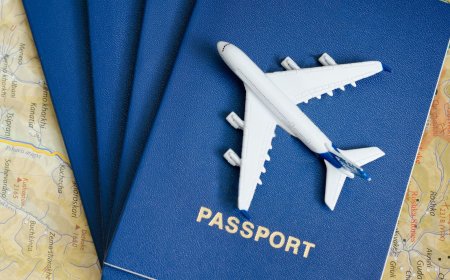How Visa Limits Are Shaking Up Australia's Hospitality Industry??
Australia’s hospitality industry is facing a labor crisis as migration restrictions and fewer international students leave restaurants struggling to fill key roles.

Struggling to Fill Hospitality Jobs
Australia’s top restaurateurs are voicing alarm over the growing impact of migration restrictions on the hospitality industry. Leading voices in Sydney’s dining scene warn that many Australians are unwilling to take on hospitality roles, leaving businesses dependent on international workers. This concern comes as federal policies aimed at curbing migration and student visas have tightened, stifling the industry’s ability to fill essential positions.
A recent report from Business NSW highlights the challenge, revealing that 80% of businesses have had to raise wages or offer better conditions in the past year to remain competitive in the fight for skilled workers. Despite these efforts, many employers report that local interest in hospitality roles remains low.
Rising Dependence on Visa Holders
With more than half of her staff on visas, one prominent restaurant owner expressed frustration at the limited pool of local talent, noting that international students and skilled migrants fill essential roles in her kitchen. The reduction in visas issued over the past year has already intensified staffing shortages, with only 86,847 study visas granted in the first quarter of 2024–25, down from 103,519 in the same period the previous year.
Government Policies and Industry Challenges
Although a proposal to cap international student numbers from 2025 was blocked, policies introduced to slow student visa issuance remain in place. Meanwhile, the opposition has pledged stricter controls if it wins the next federal election, further worrying business owners who rely on international students to fill labor gaps.
Restaurant owners also point to a cultural shift, with fewer young Australians viewing hospitality as a viable career. Many believe that the industry’s demanding nature and perceived lack of glamour deter local workers, making international students crucial for sustaining operations.
Competitive Wages but Limited Interest
Despite competitive wages—waitstaff earn a median hourly wage of $31, while chefs earn between $23.46 and $29.64 under the Restaurant Industry Award—hospitality employers say they are still struggling to attract local workers. Many fear that ongoing migration restrictions will further exacerbate the labor shortage, leaving the future of Australia’s hospitality industry uncertain.
Urgent Need for Migration Reform
As the battle for skilled workers intensifies, Australia’s hospitality sector is calling for a rethink of migration policies. Without international talent to fill critical roles, the industry faces significant challenges in maintaining its standards and growth, underscoring the urgent need for policy adjustments to address labor shortages.
What's Your Reaction?
 Like
0
Like
0
 Dislike
0
Dislike
0
 Love
0
Love
0
 Funny
0
Funny
0
 Angry
0
Angry
0
 Sad
0
Sad
0
 Wow
0
Wow
0







































































































